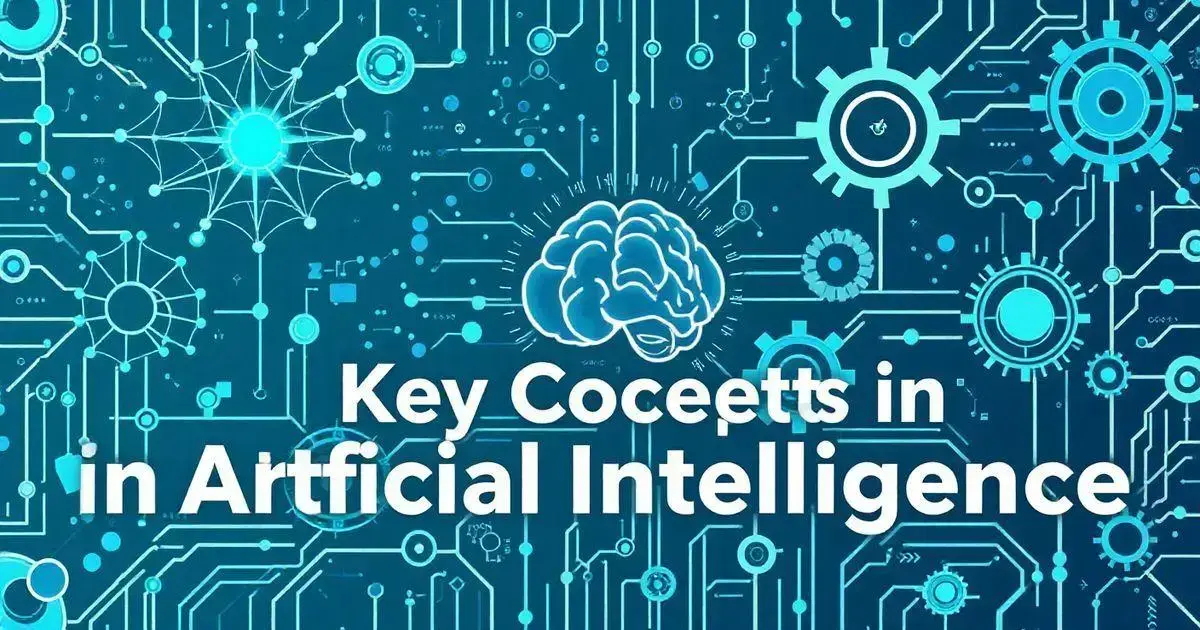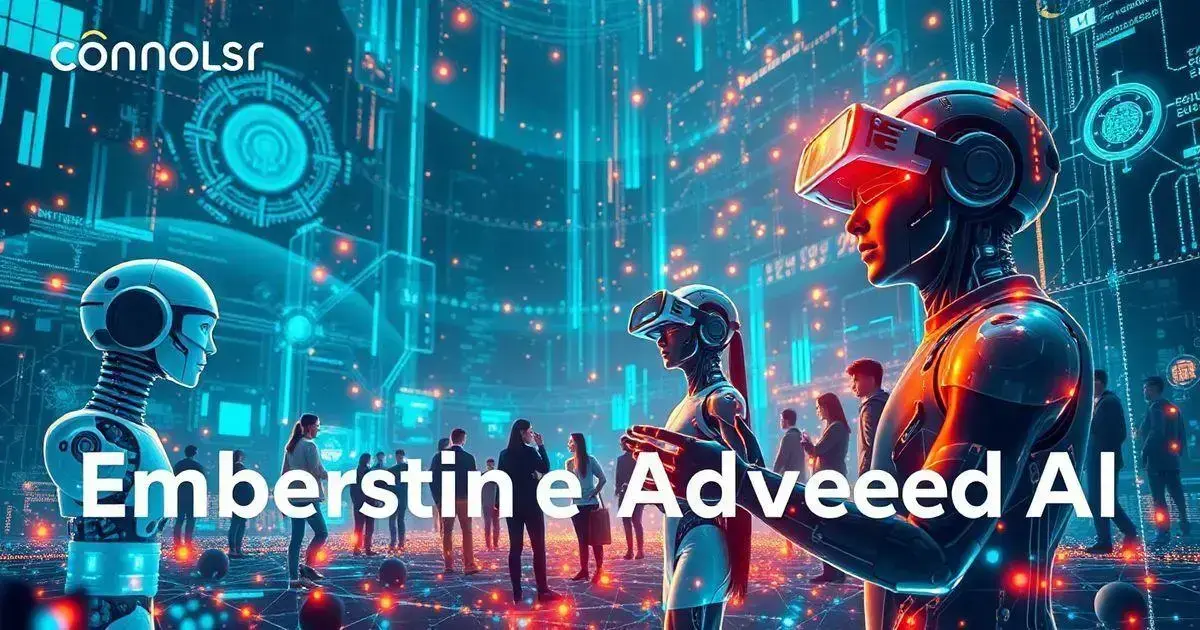Advanced Artificial Intelligence Book is a must-read for anyone looking to understand AI’s impact on our world. This technology is changing the way we work, think, and interact with machines. It’s not just for experts—everyone can benefit from understanding AI’s potential.
AI is revolutionizing industries. From smarter business operations to personalized customer experiences, the possibilities are endless. Whether you’re a student or a professional, gaining knowledge in this field opens new doors.
Want to learn how AI can transform your career or business? Keep reading to explore how this powerful technology is shaping the future and how you can be a part of it.
Introduction to Advanced Artificial Intelligence
Artificial Intelligence (AI) is transforming how we understand and interact with technology. Advanced Artificial Intelligence Book introduces sophisticated systems designed to carry out tasks that typically require human intelligence, including reasoning, learning, and problem-solving.
Understanding these tools can help anyone in digital fields. Advanced AI models utilize large datasets and powerful algorithms to improve their accuracy and efficiency. This technology is not just for tech experts; basic understanding can provide a significant edge in various fields.
In today’s landscape, embracing these advancements is crucial for growth. For instance, businesses can leverage advanced AI for personalized marketing strategies, operational efficiencies, and enhanced customer experiences.
Students and professionals can find valuable resources, like the Advanced Artificial Intelligence Book, to start their journey into advanced AI, making it accessible for everyone interested in leveraging this technology.
Key Concepts in Artificial Intelligence

Artificial Intelligence (AI) is a broad field encompassing various concepts that help machines perform tasks that typically require human intelligence. Advanced Artificial Intelligence Book dives deep into these concepts, explaining how AI systems function and evolve.
Some of these key concepts include machine learning, natural language processing, and neural networks.
Machine learning enables computers to learn from data and improve over time, while natural language processing helps them understand and generate human language.
Neural networks mimic how the human brain operates, processing information through interconnected nodes. These elements work together to create intelligent systems capable of making predictions, discerning patterns, and solving problems.
By grasping these foundational concepts, anyone can better appreciate the complexities and potentials of artificial intelligence.
Advanced Artificial Intelligence Book provides the tools to understand how these technologies apply in real-world scenarios like healthcare, finance, and autonomous systems, highlighting their practical implications across industries.
Benefits of Learning Advanced AI
Learning advanced AI can provide numerous benefits for individuals and organizations alike. Advanced Artificial Intelligence Book highlights how mastering AI allows for the automation of complex tasks, saving time and boosting productivity. By understanding advanced concepts, learners can improve their problem-solving skills and enhance decision-making processes.
Advanced AI also fosters innovation, enabling users to create new products and services that meet evolving market demands. Moreover, it opens up new career opportunities in a growing field, as the need for skilled professionals in AI continues to rise. As industries adopt AI technologies, those equipped with advanced knowledge will have a competitive edge.
Investing time in learning about advanced AI not only enriches personal expertise but also contributes to organizational success and technological advancement. Advanced Artificial Intelligence Book shows how staying current with AI developments is crucial in this dynamic field.
Challenges in Advanced AI Development

While there are many benefits to advanced AI development, several challenges can arise in the process. One significant challenge is the data quality. AI systems depend heavily on the data they are trained on, and poor-quality data can lead to inaccurate outcomes.
Advanced Artificial Intelligence Book addresses how data bias is another critical issue; biased data can create unintended consequences in AI applications, leading to unfair or disempowering results. Additionally, the complexity of algorithms often poses a challenge, making it difficult for non-experts to understand and trust these systems.
Another challenge in advanced AI development is ensuring ethical guidelines are followed. This includes protecting privacy and preventing misuse of AI technologies.
Organizations need to establish robust frameworks to handle these ethical concerns effectively. Furthermore, as technology evolves rapidly, keeping up with advancements in AI research and ensuring skills stay relevant is essential for developers.
Finally, resource constraints can impede development. Not all organizations have access to the necessary tools, data, or expertise. Advanced Artificial Intelligence Book provides valuable insights on overcoming these challenges, which are crucial for the successful implementation of advanced AI systems across various sectors.
Applications of Advanced AI in Various Industries
Advanced AI has found diverse applications across various industries, significantly enhancing efficiency and innovation.
In the healthcare sector, for instance, AI technologies are utilized for diagnosis, treatment planning, and even drug discovery. Machine learning models analyze vast amounts of medical data to identify patterns, improving patient outcomes.
In finance, AI algorithms help detect fraudulent activities and assess risks by analyzing transaction data in real-time. Moreover, personalized banking experiences are enhanced through AI-powered chatbots that assist customers effectively.
In manufacturing, advanced AI optimizes production lines by predicting equipment failures and streamlining supply chains, thus reducing costs.
The retail industry also benefits from AI through personalized shopping experiences, inventory management, and demand forecasting. By analyzing customer behavior and preferences, businesses can tailor their offerings and improve satisfaction.
Lastly, in the transportation sector, AI technologies are transforming logistics and vehicle automation. Self-driving cars are a notable example, with AI systems enabling real-time decision-making and navigation.
Advanced Artificial Intelligence Book provides an in-depth analysis of these advancements, illustrating how advanced AI drives progress across multiple fields, providing valuable insights into its transformative potential.
Future Trends in Artificial Intelligence

The future trends in artificial intelligence are poised to revolutionize various aspects of our lives and work. As technology advances, we can expect to see greater integration of AI into everyday applications. Enhanced machine learning algorithms will enable systems to learn faster and adapt more effectively to user needs.
One notable trend is the rise of explainable AI, which focuses on making AI systems’ decisions more transparent and understandable to users. This can help build trust in AI technologies as they become more widely adopted.
Another key trend is the expansion of AI in automation. Industries are increasingly using AI to automate routine tasks, improving efficiency and freeing up human resources for more complex work. This shift may significantly change job roles, requiring new skills and training for the workforce.
Furthermore, collaborative AI is on the rise, where AI systems work alongside humans to enhance productivity. This partnership can lead to better outcomes in creative fields, research, and problem-solving.
Lastly, the ethical implications of AI will continue to be a focus. As AI systems become more integrated into society, understanding and addressing issues around privacy, bias, and accountability will be crucial for their sustainable growth.
The Advanced Artificial Intelligence Book explores these trends in greater detail, offering valuable insights into how AI is shaping the future and providing the knowledge needed to navigate these changes effectively.
Recommended Resources for Further Learning
For those interested in diving deeper into advanced artificial intelligence, there are numerous resources available for further learning.
Online courses from platforms like Coursera, edX, and Udacity offer comprehensive programs in AI and machine learning, often designed by industry leaders and top universities.
Books are another valuable resource. Titles such as “Artificial Intelligence: A Modern Approach” by Stuart Russell and Peter Norvig, and “Deep Learning” by Ian Goodfellow, Yoshua Bengio, and Aaron Courville are highly recommended for a thorough understanding of AI concepts.
For hands-on practice, consider using Kaggle, a platform that provides datasets and competitions for aspiring data scientists and AI developers to test and improve their skills.
Engaging with communities such as Reddit AI and AI Stack Exchange can also provide support and answers to specific questions you may have.
Additionally, attending workshops, webinars, and conferences focused on AI technology will keep you updated on the latest trends and advancements in the field.
Staying connected with professionals in the industry will enhance your learning experience and offer networking opportunities.
Conclusion: Embracing Advanced AI

Embracing advanced AI can lead to transformative changes in various sectors. As organizations adopt these technologies, they gain competitive advantages that drive growth and innovation.
For instance, businesses can use AI to enhance customer experiences through tailored services and products. By analyzing data patterns, AI systems help companies make informed decisions that can lead to higher revenues.
Moreover, the integration of AI into operations can optimize efficiency, reduce errors, and automate repetitive tasks. This allows employees to focus on more creative and strategic roles, ultimately enhancing job satisfaction and productivity.
As we move forward, it is essential for individuals and organizations to stay informed about AI advancements and integrate them responsibly and ethically.
In summary, embracing advanced AI not only promotes a competitive edge but also paves the way for innovative solutions and improved operational capabilities.
The Advanced Artificial Intelligence Book provides a comprehensive overview of these developments, equipping readers with the knowledge to leverage AI effectively in various contexts. By understanding its potential, both individuals and organizations can thrive in an increasingly AI-driven world.
Final Thoughts on Embracing Advanced AI
As we navigate through this era of rapid technological change, embracing advanced artificial intelligence is no longer optional; it is essential. The potential benefits range from increased efficiency to enhanced decision-making capabilities.
Organizations that adopt AI solutions will find themselves at a significant advantage in their respective fields, leveraging data to drive better outcomes and strategies. However, successful implementation requires careful planning and a clear understanding of the challenges associated with AI technology.
Moreover, it is crucial to approach AI adoption ethically, ensuring that all operations comply with established guidelines and best practices. This will help build trust among users and stakeholders.
Investing in training and resources that support the development of AI technologies can lead to innovative solutions and groundbreaking advancements.
In conclusion, by fully embracing advanced artificial intelligence, businesses and individuals alike can unlock a world of opportunities that can reshape the future.
The Advanced Artificial Intelligence Book is an excellent resource for understanding how to navigate and implement AI solutions effectively, offering key insights into the evolving landscape of AI technology.